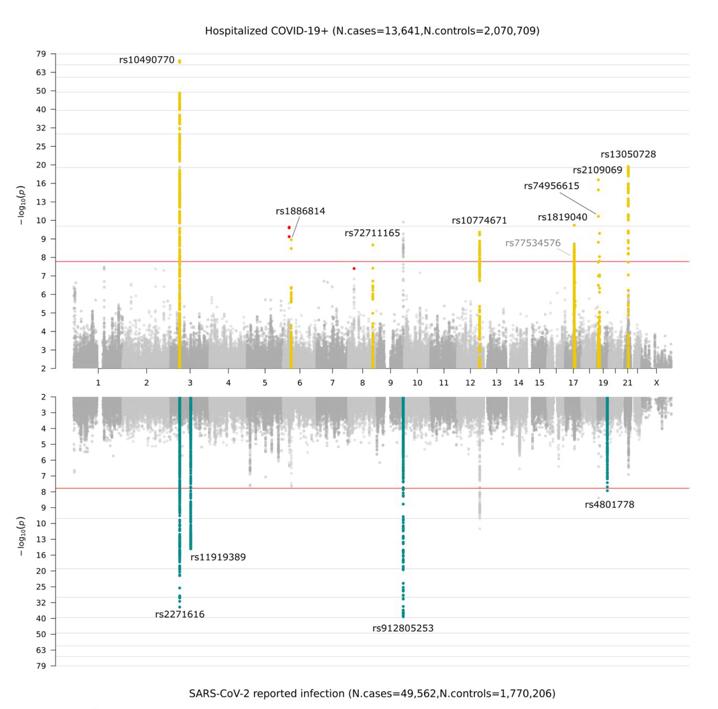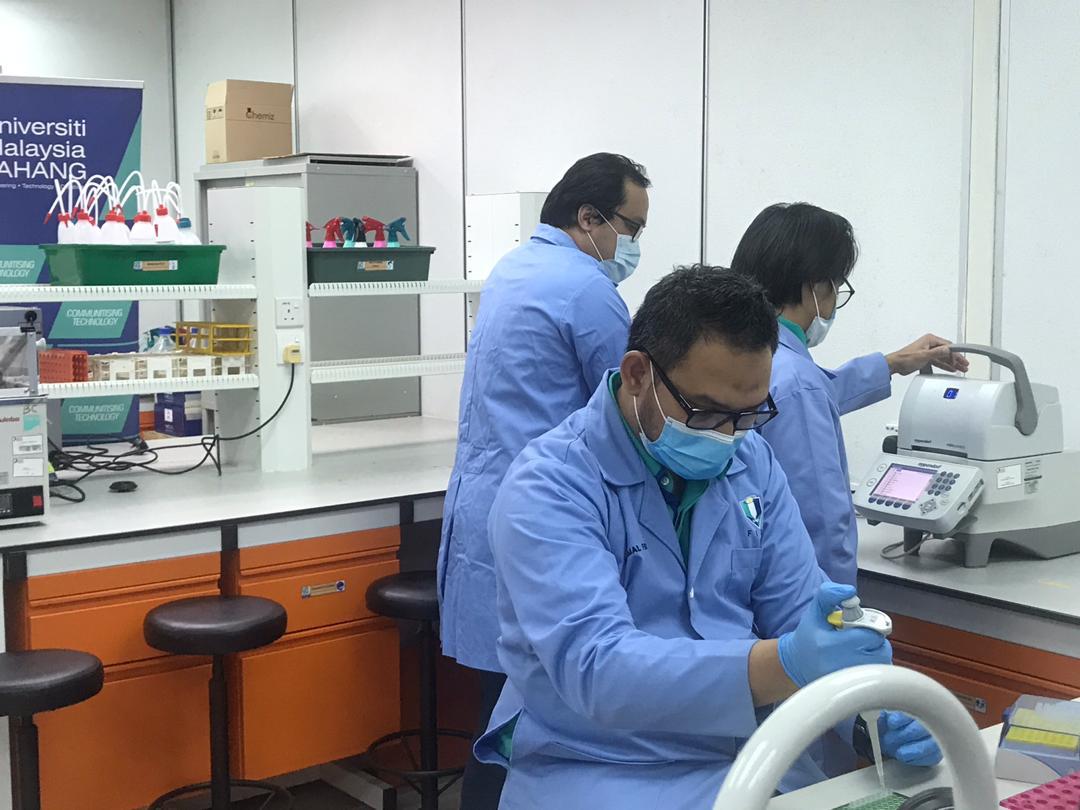UMP research on COVID-19 genome published for world reference
KUANTAN, 19 July 2021 - The study by Universiti Malaysia Pahang (UMP) with the COVID-19 Host Genetics Initiative on human genome sequencing titled Mapping the Human Genetic Architecture of COVID-19 is now published in Nature, which reveals the findings of 13 human genome loci associated with COVID-19 infection worldwide.
These include six loci that are not reported in previous COVID-19 human genomic studies.
This international effort began in March 2020 and has now expanded in the study of human genetics.
It comprises more than 3,300 researchers and 46 studies across 19 countries involving the largest study cohort of genome-wide association studies (GWAS) involving 2 million samples from around the world.
The study was led by Andrea Ganna from the Institute for Molecular Medicine Finland (FIMM), University of Helsinki, FIMM Director Mark Daly and institutional members at the Broad Institute of MIT and Harvard (Broad Institute).

For more than a year since the onset of the pandemic, researchers have sought to understand the situation of some individuals suffering from severe COVID-19 while others manifest almost no symptoms.
This study aimed to investigate the role of human genetics in SARS-CoV-2 infection and COVID-19 severity.
It was reported that 13 genome-wide significant loci are associated with SARS-CoV-2 infection or severe manifestations of COVID-19.
In detail, 4 loci influence general susceptibility to SARS-CoV-2, while another 9 loci are associated with disease severity, including lung cancer, pulmonary fibrosis and some autoimmune diseases.
According to a researcher and senior lecturer from the Faculty of Industrial Sciences and Technology (FSTI) UMP, Dr. Hajar Fauzan Ahmad, he is grateful for the opportunity to work with the COVID-19 Human Genetics Initiative over the past year.
“This consortium brings together scientists from around the world and UMP involvement and contribution to the Scientific Communication team is recorded in this article.
“Alhamdulillah, it is also an interesting experience to have the opportunity to work with great researchers such as Kumar, Mark Daly and Andrea,” he said.
He said the study of the largest genome union also identified lifestyle factors such as smoking and high body mass index (BMI) as one of the causes of severity.

“Human genomics can be an effective tool for understanding the biological mechanisms underlying the immune response to specific infections to identify individuals at risk and develop new drugs and vaccines for existing or emerging infections,” he said.
For another development, Dr. Hajar Fauzan is also actively conducting a genome sequencing study to identify variants of the virus in Pahang.
He is a trained microbial genome sequencing expert from the University of Copenhagen, Denmark.
Recently, a research article of his group titled ‘Near-Complete Genome Sequences of Nine SARS-CoV-2 Strains Harboring the D614G Mutation in Malaysia’ has been recognised and published internationally.
Also in this team are UMP lecturers and postgraduate students and assisted by lecturers from the International Islamic University Malaysia (IIUM).
The researchers are Professor Dr Gaanty Pragas Maniam, Dr. Ahmad Mahfuz Gazali, Dr. Ummuafeera Zainulabid, Dr. Norhidayah Kamarudin, Dr. Ahmad Hafiz Zulkifly, Dr. Han Ming Gan, Darren Tay, Shing Wei Siew, Dr. Aini Syahida Mat Yassin and Dr. Ahmad Afif Mohd. Faudzi.
The findings in this study are important for scientists and medical practitioners in understanding the viral change pattern through mutations over the past year.
“Through this study, we can understand how these viruses form the variants that exist until now.
“In addition, this virus is a group of microbes that are very easily mutated due to various factors, while the hypothesis is that this virus is easily mutated in the sequence of its genome,” he said.
By: Mimi Rabita Abdul Wahit, Corporate Communications Unit, The Office of The Vice-Chancellor
Translation by: Dr. Rozaimi Abu Samah, Engineering College/Faculty of Chemical and Process Engineering Technology
- 174 views










